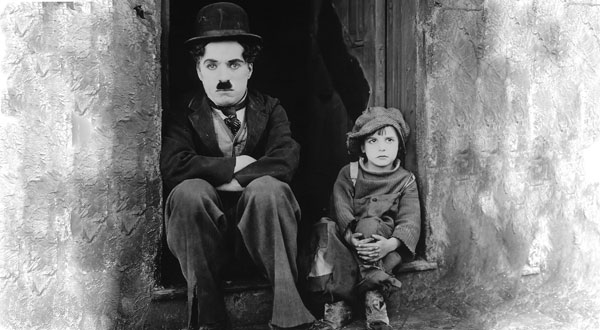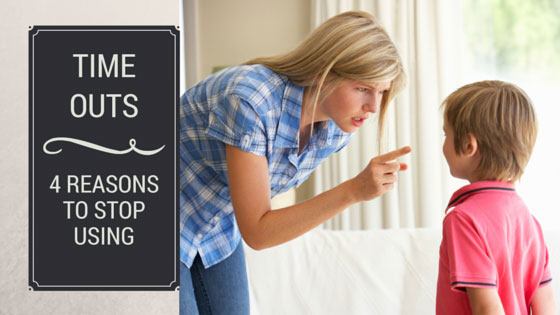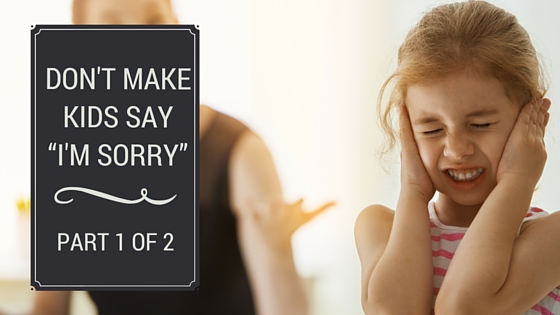We got an email recently from a parent basically asking – How do you ask a young child to do something without a struggle?
Hi, Cecilia and Jason,
I love the positivity of your parenting advice.
I feel at a loss at how to deal with my three year old.
I have resorted to shouting and threatening to get him to do what I ask because he has suddenly become really defiant and bossy.
How do you get young children to do what is asked (go to the toilet, pick up their bike, take a nap, etc) without a struggle?
And how can I ever satisfy his need for me to play with him? I think he ideally wants me at his beck and call all day but I can't do that, nor do I think I should.
I have a ten month old as well as life stuff to do.
He tells me off when I do anything other than play with him and I am at a loss to understand how he suddenly became the boss!
Can you help?
Rebecca (Not her real name)
Rebecca,
You’ve got a full life with a baby and a toddler. It probably feel like there’s not enough of you to go around to take care of your family and yourself. On top of it all your 3 year old wants a playmate and isn’t responding as quickly as you’d like when you ask him to do things.
Before we give you suggestions about what to do let’s talk a little about 3 year old development. Considering development first, before looking at what to DO with your son, will give us a shared understanding of what is happening.
This is a multifaceted situation. The way we look at it, things break down more clearly and cleanly (without judgments) if you can examine things in terms of what needs people have. Without knowing your family it’s probably safe to say that, your 10 month old has needs for food, rest, connection, and entertainment/recreation. Your 3 year old also has these needs. You have these needs too, plus it’s probably fair to say that you’ve got some adult needs too, perhaps for ease, harmony, productivity, etc. We’ll talk more about needs in a moment.
Your son, at 3 years old, is developmentally just beginning to recognize that other people have needs too. We call this ability to take another person’s perspective “de-centering”. Don’t expect that he’ll have a lot of ability to decenter right now; but this is something that you can begin to foster and watch as it develops and deepens over the next several years.
At 3 years of age kids are also working really hard to be competent—to have the skills to take care of themselves, to be independent, and to have a bit of mastery in a world in which they might not feel like they have a lot of power. He knows that he’s a separate person from you, he has a will and ideas of his own. So the good news is that if he’s acting “bossy” and “defiant”, he is developmentally exactly where he should be. The bad news is that when children act “bossy” or “defiant” they are a little less fun to live with.
But then, you might ask, what do I do to create more harmony in the home while he is in this developmental stage?
We’ve got a few suggestions:
- Make plans for the day: The little kids in our family and classroom loved knowing how the day was going to go (don’t we all?). In our classroom we would put up the plans for the day in “stick figure drawings” so that kids could “read” them and they’d know what to expect. We basically did the same thing at home when they were preschoolers. Of course, sometimes things don’t go according to the plan and we’d have to adjust, but having a flexible routine was great. The kids could help make the plan, they knew when they would have time to entertain themselves (and what options were available for entertainment) and times when we were more available to play with them.
- Play time: If you don’t already do this, consider having one-on-ones with your son. One-on-ones—where you play whatever he wants for 5-20 minutes—are one of the most important things that we’ve done over the years in our family to foster our relationship. If he knows he’s got some special time with you coming up then he might feel reassured and not “demand” your attention in the moment. The one-on-one time makes a deposit in his emotional bank account and he’s so filled up with “mommy love” that hopefully it brings more ease to his and your day. Steven Covey’s 7 Habits of Highly Effective Families has a great section about how to do one-on-one times with young and older kids. You can even include your one-on-one time in your plans for the day!
- If you are frustrated and yelling, figure out what your unmet need is and create a plan to meet some of your needs. Something us moms are perhaps especially prone to is… putting other’s needs before ours. Yes, we are adults and we can defer our needs for a short period of time, more than our children can. But we still have needs, our needs are legitimate, and when our needs get met it allows us to be better parents. Let your yelling and frustration serve as a sign that it’s time to pay a little more attention to yourself, tune in to your feelings and how you can meet some of your needs. Pick something to do that day, that week, and that month. And do those things—even if it means other things become less important. Ask others for help if you need to. Jason and I used to feel bad about asking each other for support to go to yoga class, surf, or be with friends, until we realized that if we supported each other to care for themselves then we reaped the benefit too, as did our kids.
- Creative Problem Solving: Know that when a child is doing whatever they are doing—not taking a nap, not playing alone, not using the toilet—there is always a good reason. Creative problem solving—having understanding for what he’s dealing with, sharing with him your perspective and then asking for ideas about how to solve things—is what we do every day in our family and our classroom. Help him know that you “get” him and that his feelings make sense, and you’ll find you’re over halfway through the “work” of figuring out something that will work for both of you. Even if it initially takes more time to solve problems this way, when you involve kids in the process you are making the best investment that you can, towards raising confident, and socially connected children. Bravo!
- Naptime: We are not sleep experts and we don’t have a lot of detail about what is actually happening around naps but…. we wonder if the issue of the 3 year old not wanting to take a nap could be solved. Here’s a little technique that worked well for our kids. We told them that they didn’t need to fall asleep but they did need to stay in bed. Sometimes they stayed in bed with books or toys or sometimes with nothing at all and they just rested. It gave our kids the quiet time that we wanted for us PLUS the resting time that our kids needed. And by taking out any sort of pressure to fall asleep it actually helped them to fall asleep. This “stay in bed” technique even worked for nighttime too.
- Toilet time: Again we can’t tell what the issue is with him going to the bathroom but… to the extent that he can choose when he needs to use the toilet, it will help him tune into his body, and notice more and more when he needs to “go”. If you are getting ready to get into the car and you want him to go to the bathroom so that you don’t have to stop then say, “You don’t have to go. However, now is a good time to try because where we are going it’s hard to get to the toilets and it can be uncomfortable to have to wait when you need to go really badly.” This isn’t fool proof of course, if you end up having to do an emergency potty break, then you’ve got a good example for next time to remind him, “I know you don’t want to stop playing now. Remember last time you didn’t go to the bathroom before we left and you ended up pretty unhappy about how long it took to get to a toilet? So, just give it a try now and then hopefully that won’t happen again.”
Hope some of these suggestions bring a little ease to your life!
Thank you for letting us share your story with the community!
In Gratitude,
Cecilia and Jason Hilkey










Dear Cecilia
I am reading your articles and these articles are very good and give us the practical knowledge and skills how to handle the children properly. I do rogrammes for children and mothers and these information are very useful. Thank You and God bless you
Thanks, Anoma! Check out the free Calming Plan you can download HERE.
I also struggle with nap-time and bedtime with my 3 year old. I like the idea of “stay in bed,” but what do you do when this defiant little cherub just won’t stay in bed!
Kelly, that can be tough, especially if you are trying something new. I wonder what need your 3 year old is trying to meet. That would direct your strategies. One strategy you could try is to talk with your child during a time that is not nap or bed time. Talk about what is happening. Maybe start with an observation, “I notice that when it is time for bed/take a nap…” and have a conversation, listening for their need underneath their words. Then brainstorm ideas together and write/draw them. When things get tough, you can refer your child back to the list they created with you. Let us know how it goes!
Once again I’m glad I dropped by for a drink from the Happily Family Fountain of Skillful Wisdom. Today’s reminder for me is: in every behavior a kid shows, there’s a need being expressed. That need is rarely ‘mess with the grownup’s mind.’ It’s usually more like ‘I need love but I’m scared’ or ‘I’m tired and confused’ or ‘I need to know I’m not going to be left out.’ Or the old standby, ‘I’m curious, I want to know’.
This is a simple concept but I need to be reminded. Often.
Every time I check in here, it builds on the skills I need to do my job as a loving supportive grandparent.
Thanks again Cecilia and Jason!
Thanks, Reba! I so wish I had a “read a child’s mind” device to know their underlying need. Glad you enjoyed the drink! :)